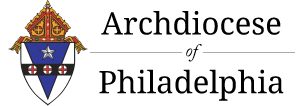“There are some resources that we hold in common, such as the air we breathe and the water we drink. We take them for granted, but their widespread availability makes everything else we do possible. I think the absence of noise is a resource of just this sort … Just as clean air makes respiration possible, silence, in this broader sense, is what makes it possible to think.”
— Matthew Crawford
In his 2015 book, The World Beyond Your Head, the author and cultural critic Matthew Crawford describes how the noise of modern culture invades our privacy every waking hour of the day, manipulating our attention and hijacking our ability to think. Silence, he writes, is now a valuable commodity. People pay for it in places like the business class lounge in an airport. For those hapless travelers unable to afford luxury items like silence – i.e., freedom from the relentless roar of commercials, entertainment, and frenzied news – their minds “can be treated as a resource – a standing reserve of purchasing power to be steered according to innovative marketing ideas hatched by the ‘creatives’ in the business lounge.”
He goes on to note, “The merest acquaintance with online porn – with the inexhaustible drop down menus of sexual options – destroys any sense you might have had that in some [freakish] sexual adventure your soul is at stake, and damnation nearby. Whatever you’re into, there’s a website for that.” Porn of course is only one of the hundreds of distractions offered 24/7 in the bazaar of modern life.
Crawford’s book is not a moral critique of our circumstances. I have no idea what religious beliefs he has, if any. His common sense point is that the absence of silence ruins our humanity by disrupting our ability to really encounter other people; to listen for and hear anything or anyone above the din of commerce.
This is why Cardinal Robert Sarah’s wonderful book, The Power of Silence, has sold so many copies and been read so widely, and deservedly so. People are desperate for an oasis of meaning in the desert of noise. It’s only in silence that we can really know ourselves or anyone else, because it allows us to absorb, reflect on, and understand our experiences. Silence is more than just an absence of the deafening racket of the marketplace; it’s the palpable, living presence of quiet – a quiet that’s fertile with rest and possibilities; a quiet we can hear; a quiet in which God can speak to us.
We live in a time of anger, confusion and anxiety in the nation, but also in the Church. We can’t escape, and we need to face, the difficulties that burden us. But we can prevent them from undermining our faith and compromising our sound judgment. To borrow a truth from the Letter to the Romans, where evil abounds — including evil within the Church and among her leaders — holiness abounds more.
God does not abandon his Church. In every generation (our own, like every other) he sends men and women to restore her purity and revive her mission. In moments of bitterness, this can sound like pious pablum, but the witness of thousands of saints proves that it’s true. We needn’t look far for an example with Philadelphia roots.
Katharine Drexel was born in 1858, baptized Catholic and raised in a wealthy Philadelphia family, her father a Catholic and her mother a Protestant, at the height of fierce anti-Catholic resentments. In her late 20s, traveling through the Western states, she was struck by the suffering of Native Americans, and she developed a lifelong commitment to helping African-American and Native American persons. On the death of her father she and her sisters inherited an immense fortune.
On the personal suggestion of Pope Leo XIII, Katharine undertook a religious vocation. In 1891 she took her first vows as a religious and founded the Sisters of the Blessed Sacrament. She used her share of the Drexel fortune to fund her community and the extensive mission work she and her religious sisters embarked on. She died in 1955 after a lifetime of heroic Christian service to the black and Native American communities. St. John Paul II canonized her as a saint in 2000.
What’s most compelling for our purposes in this brief column is this: The two miracles that ensured Katharine’s canonization were irrefutable miracles of hearing – cures of deafness in a boy (1974) and a girl (1994).
Last year the Sisters of the Blessed Sacrament contacted my office with news that they would be consolidating their community and selling their Drexel shrine, housing the remains of St. Katharine, in Bensalem. We eagerly offered to provide a permanent home for the body of St. Katharine in the archdiocese, and the Sisters generously agreed – an honor for which we will always be grateful.
A permanent tomb has been prepared for St. Katharine – with the very kind help of the Connelly Foundation — in the Cathedral Basilica of SS. Peter and Paul. It will be open for public visitation next month, in September 2018.
What’s the message in my comments this week?
In an age of relentless noise, silence is a treasure beyond calculation. In silence we can think. In silence we can make sense of a confusing and difficult time. In silence, if we commit ourselves to truly listening, we can hear the quiet voice of God. And in the silence of our cathedral – a stillness both beautiful and life-giving – we can ask St. Katharine Drexel to cure our deafness and help us hear the will of God for the Church and for our own lives. I can think of no better gift, and no more important task for all of us.
# # #
Editor’s Note: Columns will be published each week on www.CatholicPhilly.com and can also be found at https://archphila.org/archbishop-chaput/statements/statements.php.






